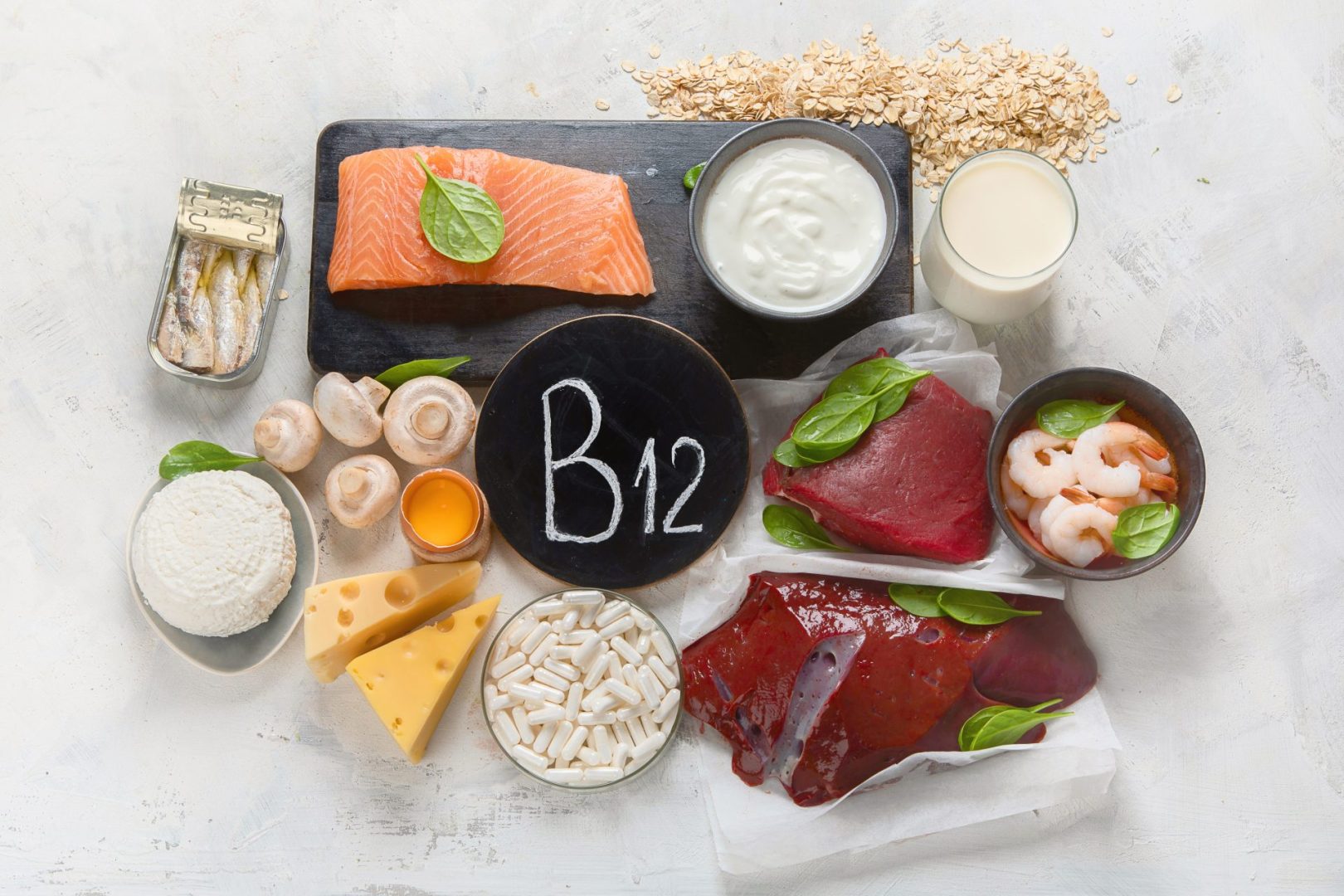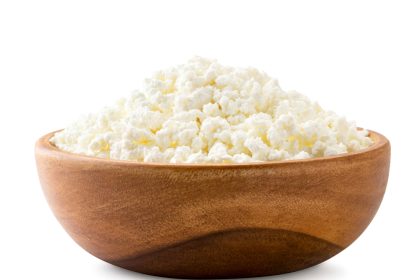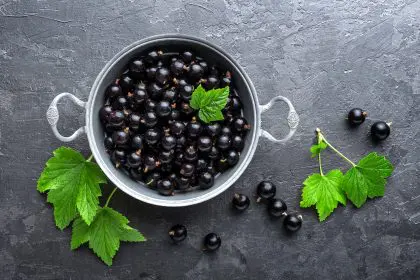Vitamin B12 plays a crucial role in numerous bodily functions, yet many people unknowingly suffer from suboptimal levels of this essential nutrient. This vital vitamin contributes to red blood cell formation, neurological function, DNA synthesis, and energy production. Unlike many nutrients found abundantly in plant foods, vitamin B12 presents a unique nutritional challenge since it naturally occurs almost exclusively in animal products, making strategic food choices particularly important for maintaining healthy levels.
The importance of vitamin B12 in your health
Vitamin B12, also called cobalamin, stands out among vitamins for several reasons. Its unique molecular structure contains the mineral cobalt, and it’s the only vitamin that requires a specific protein, intrinsic factor, produced in the stomach for proper absorption.
The body uses vitamin B12 for critical functions throughout multiple systems. In the blood, it enables red blood cell formation and prevents megaloblastic anemia, a condition causing weakness and fatigue. Within the nervous system, B12 maintains the myelin sheaths that insulate nerve fibers, supporting proper neurological function. At the cellular level, this vitamin participates in DNA synthesis and helps convert food into energy.
Despite its importance, vitamin B12 deficiency affects a significant portion of the population. Risk factors include age (absorption naturally decreases after 50), digestive conditions affecting nutrient absorption, vegetarian or vegan diets, certain medications including proton pump inhibitors and metformin, and genetic factors affecting metabolism.
Deficiency develops gradually since the liver stores several years’ worth of vitamin B12. Early symptoms include fatigue, weakness, constipation, loss of appetite, and weight loss. As deficiency progresses, neurological symptoms may appear, including numbness and tingling in hands and feet, balance problems, depression, confusion, poor memory, and in severe cases, dementia-like symptoms.
The recommended daily allowance for vitamin B12 is 2.4 micrograms for most adults, with slightly higher needs during pregnancy (2.6 mcg) and lactation (2.8 mcg). Fortunately, several food sources provide exceptional amounts of this crucial nutrient in highly bioavailable forms.
Shellfish: The unrivaled B12 powerhouse
Among all food sources, shellfish reign supreme for vitamin B12 content, with certain varieties providing exceptional amounts in highly bioavailable forms.
Clams stand as the undisputed champion of vitamin B12 content in the food supply. A 3-ounce serving of cooked clams provides an astonishing 84 micrograms of vitamin B12 – over 1,400% of the daily value. This remarkable concentration means even small portions deliver substantial benefits. Just 10 small clams or a single restaurant serving can provide several days’ worth of this essential nutrient.
Mussels offer another exceptional shellfish source, with a 3-ounce serving providing approximately 20 micrograms of vitamin B12 (333% of daily needs). Beyond their impressive B12 content, mussels provide iron, selenium, manganese, and omega-3 fatty acids, creating a nutrient-dense profile that supports overall health.
Oysters combine remarkable B12 content with an array of other nutrients. A 3-ounce serving delivers about 16 micrograms of vitamin B12 (267% of daily needs) alongside zinc, copper, and iron. This nutritional profile makes oysters particularly valuable for supporting immune function alongside B12-dependent processes.
Crab meat contains moderate but significant amounts of vitamin B12, with a 3-ounce serving providing around 7-10 micrograms depending on variety. King crab offers higher amounts than blue crab, though both provide substantial portions of daily requirements.
Preparing shellfish properly maximizes both safety and nutritional value. Fresh shellfish should smell like the ocean – clean and briny rather than fishy. Cook clams and mussels until the shells open (discarding any that remain closed), and cook oysters until the edges curl. Avoid overcooking, which can degrade some nutrients and negatively impact texture.
For those concerned about environmental impact, farmed mussels and oysters often represent sustainable choices since they require no feed input and can actually improve water quality through their filtering activity. Look for certification from organizations that verify sustainable harvesting practices.
Organ meats: Traditional superfoods rich in B12
Organ meats, though less commonly consumed in modern diets, represent some of the most concentrated sources of vitamin B12 and other nutrients essential for optimal health.
Beef liver stands out as an exceptional source, with a 3-ounce serving providing approximately 70 micrograms of vitamin B12 – over 1,100% of daily requirements. This same portion also delivers substantial amounts of vitamin A, copper, folate, and other B vitamins, creating a remarkably dense nutritional package.
Kidney, particularly from lamb, offers another excellent option, providing approximately 55 micrograms of vitamin B12 per 3-ounce serving. Lamb kidney contains less vitamin A than liver, making it a good alternative for those concerned about vitamin A accumulation from regular liver consumption.
Heart meat, while containing less vitamin B12 than liver or kidney, still provides significant amounts. A 3-ounce serving of beef heart delivers approximately 9 micrograms of vitamin B12 (150% of daily needs) with a milder flavor profile that some find more palatable than other organ meats.
Incorporating organ meats into your diet can be approached gradually through several preparation methods. Grinding organ meats and mixing with ground muscle meat creates burgers or meatballs with enhanced nutrition but milder flavor. Starting with small amounts and increasing gradually allows taste preferences to adjust over time.
Cooking techniques significantly impact the palatability of organ meats. Brief, high-heat cooking methods help maintain tenderness while preventing the stronger flavors that develop with prolonged cooking. Soaking liver in milk for 30 minutes before cooking can reduce bitter compounds, creating a milder flavor profile.
For those unable to overcome taste objections to organ meats, desiccated organ supplements provide an alternative delivery method. These supplements contain freeze-dried, powdered organs in capsule form, offering nutritional benefits without taste considerations. Look for products from grass-fed, organically raised animals for optimal quality.
Fortified nutritional yeast: Plant-based B12 alternative
For those following plant-based diets, fortified nutritional yeast provides one of the few reliable non-animal sources of vitamin B12 in an easily incorporated form.
Nutritional yeast, different from baker’s or brewer’s yeast, undergoes a specific growth and deactivation process that creates its distinctive flavor profile and nutritional composition. The natural form contains no vitamin B12, but many commercial varieties undergo fortification with this essential nutrient.
B12 content varies significantly between brands, with fortified versions typically providing 2-5 micrograms per tablespoon. Label checking becomes essential, as some natural food enthusiasts prefer unfortified versions. Consistent use of fortified nutritional yeast can contribute meaningfully to B12 intake for those avoiding animal products.
Beyond vitamin B12, nutritional yeast offers complete protein containing all nine essential amino acids, fiber, and other B vitamins, creating a nutritional profile that supports multiple aspects of health. The naturally occurring glutathione and selenium contribute antioxidant properties that complement its nutritional benefits.
The distinctive flavor profile, often described as cheesy, nutty, or savory, makes nutritional yeast versatile in numerous culinary applications. Sprinkle it on popcorn, pasta, roasted vegetables, or salads for an umami flavor boost. Blend into sauces and dressings, or use in place of cheese in vegan recipes to enhance both flavor and nutritional value.
Storage considerations help maintain potency, as B vitamins can degrade with exposure to heat, light, and oxygen. Keep nutritional yeast in an airtight container in a cool, dark place, or refrigerate for maximum nutrient retention, particularly after opening.
Dairy products: Accessible everyday B12 sources
Dairy products provide readily available vitamin B12 sources in forms most people already consume regularly, making them practical options for maintaining adequate intake.
Milk contains moderate amounts of highly bioavailable vitamin B12, with one cup providing approximately 1.2 micrograms (50% of daily needs). The fat content doesn’t significantly affect B12 concentration, making low-fat options equally valuable sources of this nutrient.
Yogurt often contains slightly higher vitamin B12 concentrations than milk, with one cup of plain yogurt providing approximately 1.5 micrograms of vitamin B12. Greek yogurt, with its higher protein content, sometimes offers even more, depending on the specific manufacturing process.
Cheese varies in vitamin B12 content based on type and aging process. Swiss cheese ranks among the highest, with a 1-ounce serving providing about 0.9 micrograms. Other good options include mozzarella (0.6 mcg per ounce) and feta (0.5 mcg per ounce). As a general pattern, aged cheeses typically contain more vitamin B12 than fresh varieties.
The bioavailability of vitamin B12 from dairy products gives them advantages over some other sources. The nutrient in dairy comes pre-bound to protein, potentially enhancing absorption, particularly for those with mild digestive issues affecting B12 uptake.
Fermented dairy products like yogurt and kefir offer additional benefits that may complement vitamin B12 intake. The beneficial bacteria in these foods support digestive health, potentially improving overall nutrient absorption, though the fermentation process itself doesn’t significantly increase B12 content.
For those with lactose intolerance, hard aged cheeses like swiss, parmesan, and cheddar contain minimal lactose and remain viable B12 sources. Lactose-free milk undergoes treatment that removes lactose without affecting vitamin content, making it another option for those with lactose sensitivity.
Fish and seafood: Sustainable B12-rich options
Various fish and seafood options provide excellent vitamin B12 content while offering additional nutritional benefits, particularly omega-3 fatty acids that support cardiovascular and brain health.
Salmon, especially wild-caught varieties, delivers exceptional vitamin B12 content. A 3-ounce serving of cooked wild Atlantic salmon provides approximately 2.6 micrograms of vitamin B12 (108% of daily needs). Farmed salmon contains slightly less but still offers significant amounts.
Trout represents another outstanding option, with a 3-ounce serving providing approximately 5.4 micrograms of vitamin B12 (90% of daily needs). Rainbow trout, in particular, combines excellent nutritional value with high sustainability ratings, making it both an environmentally and nutritionally sound choice.
Tuna varies in vitamin B12 content by type, with 3 ounces of bluefin tuna providing approximately 9.3 micrograms (154% of daily needs) and light canned tuna offering about 2.5 micrograms. Balancing tuna consumption with other fish varieties helps manage potential concerns about mercury content.
Sardines provide an often-overlooked but nutritional powerhouse option, with a 3-ounce serving delivering approximately 6.6 micrograms of vitamin B12 (110% of daily needs). Their edible bones also provide calcium, while their small size results in minimal mercury accumulation, addressing a common seafood concern.
Cooking methods affect both the culinary experience and potential nutrient retention. Gentle methods like poaching, steaming, and baking at moderate temperatures help preserve delicate omega-3 fatty acids while maintaining moisture. Avoid high-heat methods like frying, which can degrade some nutrients and add unnecessary calories.
Sustainability considerations become increasingly important when incorporating seafood into your diet. The Monterey Bay Aquarium’s Seafood Watch program and the Marine Stewardship Council certification help identify options harvested or raised with minimal environmental impact. Generally, smaller species lower on the food chain (like sardines and herring) and carefully managed farmed options represent more sustainable choices.
Eggs: Convenient and versatile B12 source
Eggs provide a readily available, affordable source of vitamin B12 along with an impressive array of other nutrients in a versatile culinary package.
A single large egg contains approximately 0.6 micrograms of vitamin B12 (25% of daily needs), primarily concentrated in the yolk. While this amount may seem modest compared to some animal sources, the frequency with which most people consume eggs makes them a significant contributor to overall B12 intake.
The vitamin B12 in eggs demonstrates excellent bioavailability, with research suggesting that the body can effectively absorb and utilize a high percentage of the B12 present. This efficiency makes eggs particularly valuable for those with mild absorption issues.
Beyond vitamin B12, eggs contain high-quality complete protein, choline (essential for brain health), lutein and zeaxanthin (supporting eye health), and various other vitamins and minerals. This nutritional complexity makes eggs a supportive food for overall health beyond their B12 content.
Cooking methods don’t significantly affect vitamin B12 content in eggs, as this vitamin shows good stability during normal cooking procedures. This resilience allows flexibility in preparation methods based on personal preference rather than nutritional considerations.
For maximum nutritional benefit, consume whole eggs rather than just egg whites. The yolk contains nearly all the egg’s vitamin B12, along with fat-soluble vitamins and essential fatty acids that complement its nutritional profile.
Egg quality considerations may influence both nutritional value and ethical concerns. Pasture-raised eggs from hens with outdoor access typically contain higher levels of omega-3 fatty acids and certain vitamins compared to conventional eggs, potentially creating a more balanced nutritional profile alongside their B12 content.
Fortified plant-based alternatives
For those following vegetarian or vegan diets, or with allergies to animal products, fortified plant-based foods provide crucial vitamin B12 sources that help prevent deficiency.
Plant-based milk alternatives undergo fortification with various nutrients, including vitamin B12, though content varies significantly by brand. Fortified soy, almond, and coconut milk typically contain 0.7-1.2 micrograms of vitamin B12 per cup when fortified, similar to dairy milk. Label checking becomes essential, as not all products contain added B12.
Fortified breakfast cereals provide another convenient option, with many containing 100% of the daily value (2.4 micrograms) per serving. The amount varies by brand and product, making nutrition label reading important for accurate assessment of B12 content.
Meat alternatives, including certain veggie burgers and plant-based “meats,” often contain added vitamin B12, though amounts vary widely. Some products provide 50-100% of the daily value per serving, while others contain none, making label checking essential.
The bioavailability of vitamin B12 from fortified foods generally compares favorably with natural sources, as the crystalline form used in fortification doesn’t require separation from proteins before absorption. This characteristic makes these products valuable options for those with mild absorption issues.
Regular consumption patterns matter significantly with fortified foods, as consistent intake helps maintain stable vitamin B12 levels. Unlike animal foods where occasional consumption of highly concentrated sources can provide substantial amounts, fortified foods typically require regular inclusion in the diet to meet needs effectively.
Maximizing absorption and addressing special considerations
Various factors affect vitamin B12 absorption, making strategic consumption patterns important for optimal nutrient status, particularly for those with increased risk factors for deficiency.
Timing considerations can enhance absorption efficiency. Consuming vitamin B12-rich foods across multiple meals rather than in a single large dose maximizes uptake, as absorption mechanisms can become saturated with very large amounts. This pattern proves particularly important for those relying on fortified foods with lower concentrations.
Digestive health directly impacts vitamin B12 absorption, as the nutrient requires both stomach acid and intrinsic factor for optimal uptake. Supporting digestive function through regular physical activity, stress management, adequate hydration, and consumption of fermented foods may indirectly support B12 status.
Certain populations face increased challenges maintaining adequate vitamin B12 levels. Adults over 50 often experience decreased stomach acid production, reducing B12 absorption efficiency. Vegetarians and vegans need reliable fortified food sources or supplements without careful planning. Those with digestive conditions affecting nutrient absorption, including celiac disease, Crohn’s disease, and previous weight loss surgery, often require higher intake or supplemental forms.
Medication interactions can impact vitamin B12 status over time. Long-term use of proton pump inhibitors and H2 blockers for acid reflux reduces stomach acid needed for B12 absorption. Metformin, commonly used for type 2 diabetes, may reduce B12 absorption with long-term use. Those using these medications should discuss B12 monitoring with their healthcare providers.
For individuals unable to maintain adequate levels through diet alone, supplementation provides a reliable alternative. Supplemental forms include cyanocobalamin (most common and stable), methylcobalamin (active form), hydroxocobalamin (longer-lasting), and sublingual formulations that bypass some digestive requirements.
By understanding these food sources and optimization strategies, you can effectively maintain healthy vitamin B12 levels through informed dietary choices, supporting optimal neurological function, energy production, and overall health throughout life.











